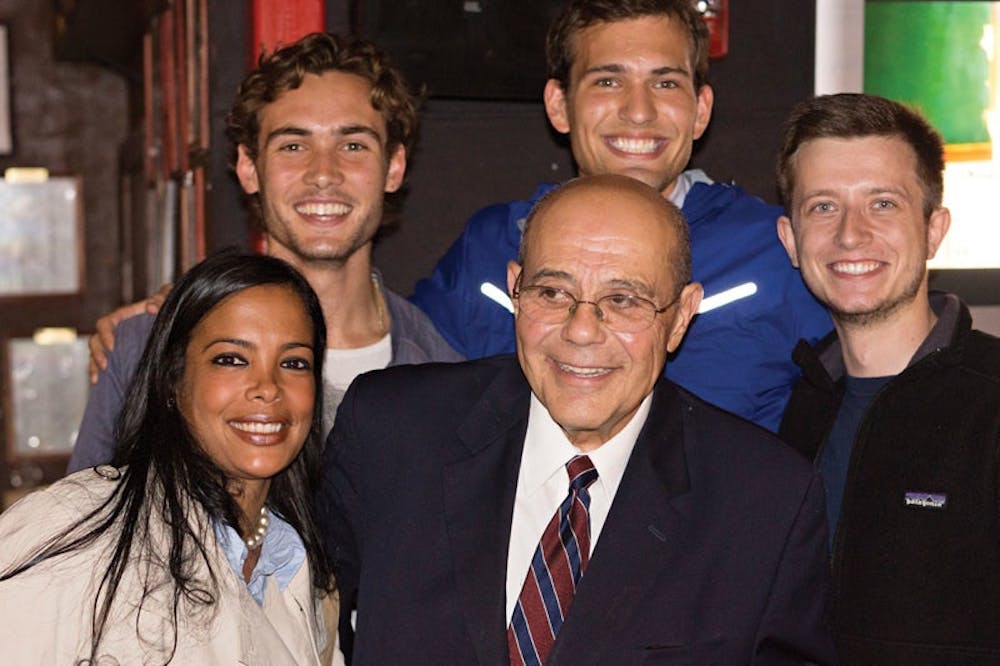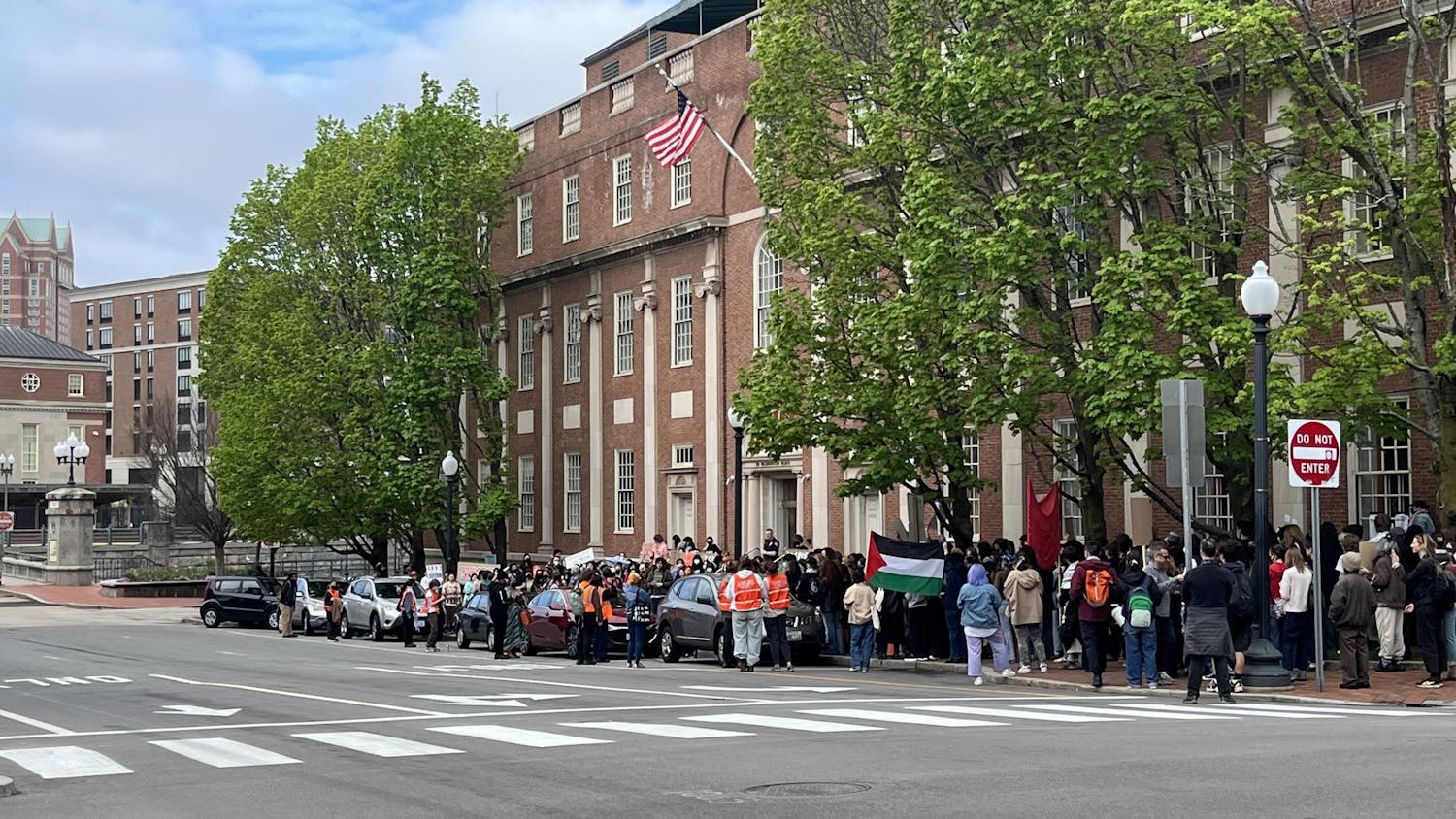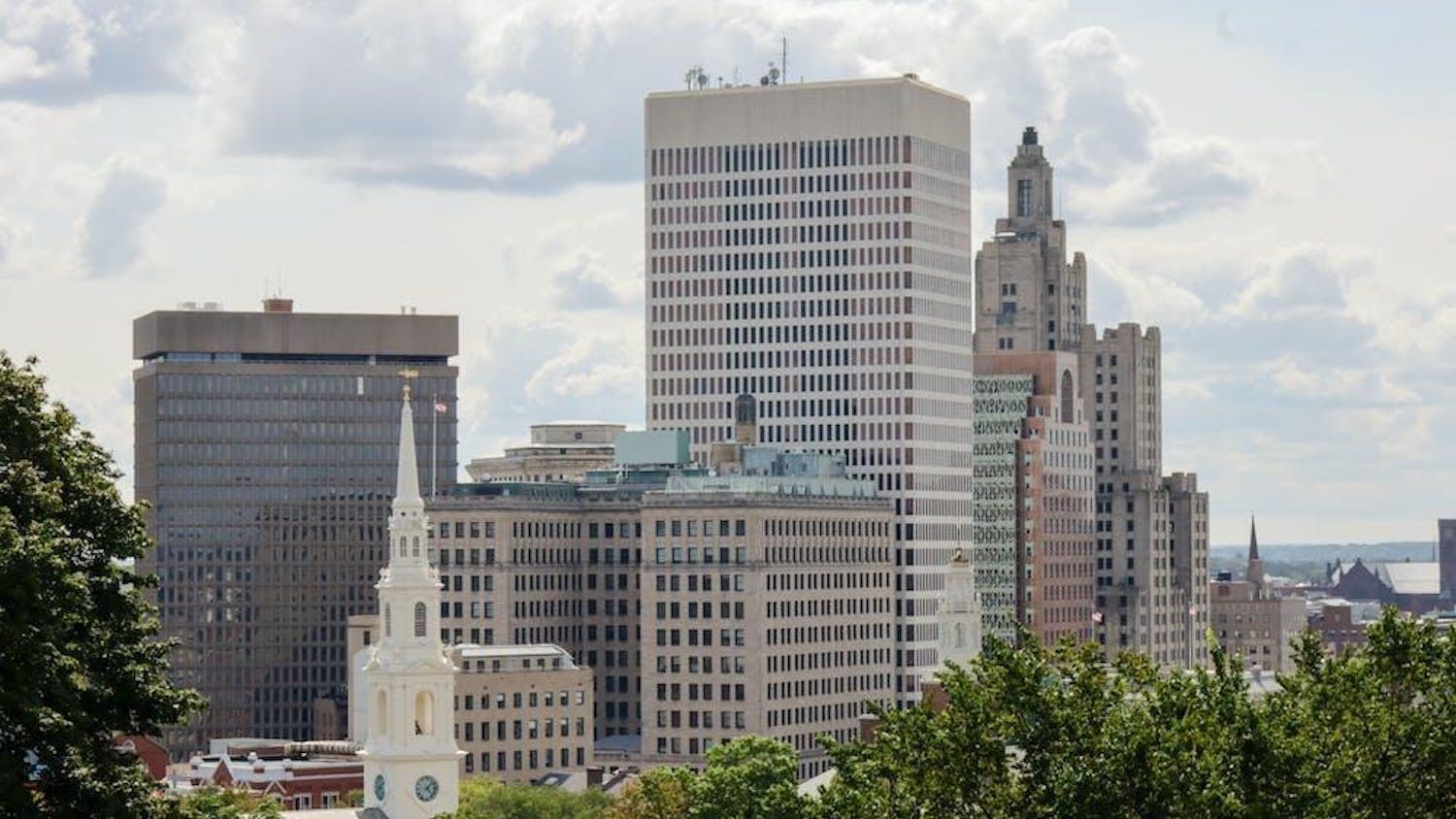Seated amidst galleries of vintage photographs, walls of framed degrees and large poster boards illustrating models for a new Providence at his 175 Broad Street campaign headquarters, former mayor Vincent “Buddy” Cianci said the city’s current condition “is what it is.”
Providence is “an American city that’s in decline,” he said, adding the city lacks resources and leaders with experience.
“This isn’t the time the city can experience on-the-job training in a mayor,” he told The Herald.
“It is what it is” is a fitting rejoinder for the mayoral candidate, who served as mayor of Providence from 1975-1984 and 1991-2002. Cianci resigned from office in 1984 after pleading no contest to allegations of felony assault. He left office again in 2002 with a federal conviction for racketeering conspiracy.
When asked if he had any regrets about his prior performance, Cianci said, “Yeah. The verdict.”
Cianci spoke like a police officer hoping to close a long-open case, touting his 22 years of experience as mayor while regarding his criminal indictments and four-and-a-half-year prison term as learning experiences to leave behind him.
A media storm focused primarily on Cianci’s illicit behaviors has become a “disservice” to the people of Providence, Cianci said.
“This isn’t my first rodeo,” Cianci said. “I’ve been around awhile. I’ve been through seven of these campaigns. This is the seventh, and frankly, I didn’t make this decision to run in a vacuum.”
Cianci said the media frenzy does more harm to city residents, who he said “don’t care” about his criminal record. “People want to know why their kid has to go to an underperforming school and spend three hours on a bus to get there. That’s what they want to know,” he said.
“They want to know why they can’t walk down Thayer Street at night and (not) be in fear of getting mugged. The ladies on the East Side want to know why they’re afraid to go put their garbage out, because they’re in fear of getting mugged like their neighbor the night before. They’re wondering why there are no jobs in the city.”
Cianci said he has chosen to run for mayor to rebuild a city that has steadily fallen behind over the last decade, mounting the podium once more even after a bout of colon cancer at age 73.
Cianci has forged ahead, as the candidate he said has a “vision” for the future, despite his dirty laundry aired by the press and his recently compromised health. This vision includes improved public safety and education, the development of the empty I-195 land into commercial space and a revitalized Seekonk River busy with ferries that he said would transport people from India Point to new biotechnical buildings. In the next room sit large poster boards depicting two-dimensional images of this proposal.
Despite Cianci’s talk of new visions for the city, he has primarily painted his latest campaign with images from his past. To solicit voters’ confidence, Cianci returns time and again to his previous accomplishments, publicly at live debates and privately in one-on-one discussions.
The sign above his office door at headquarters — the same building Hillary Clinton used as her state headquarters in her 2008 presidential bid, WPRI reported — reads, “Vincent A. Cianci, Jr. Mayor,” and Cianci began many sentences with “When I was mayor.”
“When I was mayor before, we were one of the … best cities to live in, according to Money magazine. We were one of the five Renaissance cities according to USA Today. In 1994, we were the safest city in America, according to the All Cities Almanac.”
Providence ranked second to Honolulu that year in the Livable Cities Almanac, though it was first in the continental United States, according to PolitiFact R.I.
Cianci said it was his administration that spearheaded historic preservation in the 1970s, essentially saving the Providence Performing Arts Center and Trinity Repertory Company that stand downtown today. With these cultural arenas, Cianci said his administration “created the first arts district in America, the very first where artists don’t pay taxes.”
“It was a city that was setting the pace,” he said before adding that Providence also established the first gun court in the United States, which exclusively handles firearms cases.
As part of a comprehensive urban renewal project during his second stint as mayor, Cianci presided over the construction of Waterplace Park, the initiation of WaterFire and the construction of Providence Place Mall, which opened Aug. 29, 1999.
When asked how he could square his achievements with his corruption during the same period to voters, Cianci worked to dispel an apparent myth.
“The myth is we had all these bad people,” Cianci said. “The truth is we had 6,000 people working for the city,” including “great” teachers, parks directors, firefighters and City Hall staff members, he added.
To reproduce this success, Cianci said he would fill the next administration with people who are “as diverse as the city” and at the forefront of their fields.
“I would absolutely go to people who have track records of performing,” he said, naming as examples Gary Sasse, a former director of the Rhode Island Public Expenditure Council, a former director of the Rhode Island Department of Administration and the state Department of Revenue, and now director of the Bryant Institute for Public Leadership at Bryant University, Mac Farmer, a former city councilmember and attorney and Brendan Doherty, former Rhode Island State Police Superintendant.
And it is in people that Cianci invests and in the people he said he trusts to win the race. “People are the ultimate deciders,” he said, not the Providence Journal or former U.S. attorneys. U.S. Sen. Sheldon Whitehouse, D-R.I., U.S. Attorney for Rhode Island Robert Corrente and former Republican Gov. Lincoln Almond, who spoke out against Cianci’s bid for mayor at a press conference Oct. 14.
At Vitale’s Tailoring and Dry Cleaning in Mount Pleasant, a stop on Cianci’s campaign trail last week and a shop that owner Rocco Vitale said Cianci patronized throughout his time in office, hangs an embroidered sign that reads, “When I am right, no one remembers. When I am wrong, no one forgets.”
What Providence residents and voters choose to remember or forget, and how either memory affects their decision at the polls, will come to bear on Cianci’s narrative come Nov. 4.
-With additional reporting by Steven Michael

ADVERTISEMENT




